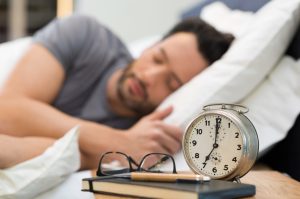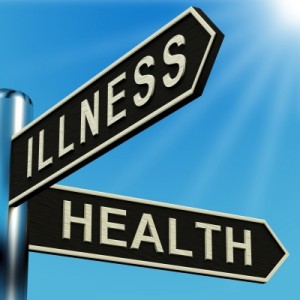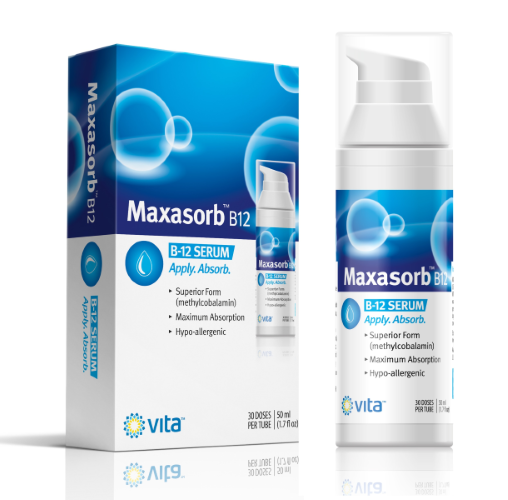 It’s Friday night and the weekend is just beginning. After a long week of work, you may be thinking about that glass of wine or pint of beer to help you relax. In moderation, there is nothing wrong with a few drinks on the weekend. However, a recent study has found that drinking more than the suggested amount each week can shorten your life.
It’s Friday night and the weekend is just beginning. After a long week of work, you may be thinking about that glass of wine or pint of beer to help you relax. In moderation, there is nothing wrong with a few drinks on the weekend. However, a recent study has found that drinking more than the suggested amount each week can shorten your life.
What is the recommended alcohol intake for most adults?
General recommendations in the United States suggest that men consume no more than 2 standard alcoholic drinks a day and women consume no more than one daily. A standard drink is equal to:
- 12 ounces beer (5% alcohol content)
- 8 ounces malt liquor (7% alcohol content)
- 5 ounces wine (12% alcohol content)
- 1.5 ounces liquor (40% alcohol content)
Any more than this recommendation is heavy drinking and can have negative health effects. More than 4 drinks at one occasion for a woman or 5 drinks for a man is considered binge drinking. Negative health effects of such heavy drinking include:
- short term effects such as increased risk of falls, injuries, car crashes if driving while intoxicated, and increased likelihood of engaging in risky behaviors such as unprotected sex or violent behavior.
- if pregnant and drinking, your unborn child could have increased risk of fetal alcohol syndrome, miscarriage, or stillbirth.
- increased risk of heart disease, stoke, liver disease, and digestive problems
- increased risk of anxiety and depression
- learning and memory problems
In addition to such health problems, long term drinking could lead to problems with family and friends if you become dependent on alcohol. Contact the Substance Abuse and Mental Health Services Administration (SAMHSA) for resources on how to get help if you think you may have a drinking problem.
Alcohol and life span
A recent study in the medical journal Lancet found that for each alcoholic drink over 6 standard glasses of wine or 7 standard 12 oz beers a week could shorten your life by 30 minutes. This may not seem like a lot, but every minute can add up over time. This recommended amount is equal to about 12.5 units of alcohol.
You may ask, “How did they come up with this number?” The answer to this comes in the form of a study of about 600,000 current drinkers included in 83 studies from 19 countries. It was found that a 40-year old drinking just 2-3 standard drinks a week more than the suggested tipping point can lower their life expectancy by about 2 years. This is likely due to the health effects listed above such as increased risk of heart disease, among other things. This study helped support the United Kingdom’s proposed reduction in alcoholic drink recommendations. When following these guidelines, people had a 20-percent lower heart disease risk. Also, there was no increase in harm to health seen in terms of death rate in those who were compliant with the guidelines.
Although some studies show that moderate drinking may help heart health, this study reports different results. Researchers suggest that a glass of red wine now and then may reduce the risk of a non-fatal heart attack. However, this positive health effect is offset against the increased risk of other health issues.
Other ways to relax
If drinking alcohol is a method you use to relax, then perhaps it is time to try healthier methods of lowering stress. Try a few of the methods below to replace happy hour, so you can live out the highest quality, and quantity of life possible.
- Exercise each day with something as simple as a short walk. Just getting fresh air and sunshine on your face can help you feel better and more relaxed. Try to walk at least 3 to 5 times a week.
- Breathe. Taking five deep breaths when you are stressed and practicing relaxation breathing before bed can help you to reduce stress.
- Meditate and focus on all of the positive things in your life such as those things you have accomplished, what you are grateful for, to name a few.
- Take breaks throughout the day. Even just a 5 minute break here and there during your work day can help. Rub some relaxing essential oil scents on your wrist or neck, go to the bathroom stall, sit down, and take several deep breaths. Release the stress from your mind and focus on your breath and the scent. You can also do this at home when you are feeling overwhelmed or just want to decompress after a long day.
- Detox your life in a variety of ways to lighten your load of stress. You can do this by:
- giving away clothes you don’t wear anymore.
- cleaning your house and reorganizing your belongings.
- self care such as a hot bath with relaxing essential oils like lavender, getting a massage, or getting your hair done.
- writing in a journal or talking with a trusted friend, family member, or counselor. Talking can help you to unload your brain of any fears, anxieties, or stress that may be bogging you down.
- taking a supplement such as Sereneo by Vita Sciences to relax your mind. Sereneo contains ingredients such as valerian root, magnesium, and chamomile to help increase your levels of feel good serotonin.
-written by Staci Gulbin, MS, MEd, RD, LDN
Sources:
Boseley, S. (April 13, 2018) “Extra glass of wine a day ‘will shorten your life by 30 minutes.'”
Centers for Disease Control and Prevention (January 3, 2018) “Fact Sheets- Alcohol Use and Your Health.”
Tartakovsky, M.S., M. (May 23, 2013) “20 Ways to Relax & Unwind.”
 Nearly half of all Americans have high blood pressure, or hypertension. Having hypertension can put you at increased risk for heart disease and stroke, which are two of the top five leading causes of death in the United States. Therefore, it is important that if you have high blood pressure that you should work to be more heart healthy to prevent chronic disease. This usually includes eating a heart healthy diet and exercising. However, a recent survey shows that exercise is the last thing people want to do to try and lower their blood pressure.
Nearly half of all Americans have high blood pressure, or hypertension. Having hypertension can put you at increased risk for heart disease and stroke, which are two of the top five leading causes of death in the United States. Therefore, it is important that if you have high blood pressure that you should work to be more heart healthy to prevent chronic disease. This usually includes eating a heart healthy diet and exercising. However, a recent survey shows that exercise is the last thing people want to do to try and lower their blood pressure. Staying active has many benefits. In particular, you may have been told by a healthcare provider to move more to help manage weight or improve heart health. However, a recent study has found that a walk in the park may also reduce stress levels in the body.
Staying active has many benefits. In particular, you may have been told by a healthcare provider to move more to help manage weight or improve heart health. However, a recent study has found that a walk in the park may also reduce stress levels in the body. There’s nothing better than coming home after a long and stressful day of work or school, and having a happy wagging tail waiting at the door for you. Owning a pet involves a lot of work and cost. However, studies show that a pet may be worth the time and money for the good of your health. A recent study review has shown that having a pet can decrease anxiety and provide overall benefits to anyone suffering from mental health issues.
There’s nothing better than coming home after a long and stressful day of work or school, and having a happy wagging tail waiting at the door for you. Owning a pet involves a lot of work and cost. However, studies show that a pet may be worth the time and money for the good of your health. A recent study review has shown that having a pet can decrease anxiety and provide overall benefits to anyone suffering from mental health issues. Sleep is a precious commodity in your busy life. Between work, taking care of loved ones, and running errands, it is a wonder you find time to sleep at all. However, it is important to make time for sleep because of all of the health benefits adequate sleep can provide. A recent study suggests that making a to-do list may help ease your mind so you can capture more sleep.
Sleep is a precious commodity in your busy life. Between work, taking care of loved ones, and running errands, it is a wonder you find time to sleep at all. However, it is important to make time for sleep because of all of the health benefits adequate sleep can provide. A recent study suggests that making a to-do list may help ease your mind so you can capture more sleep. Every new year, many of us make resolutions to be healthier. Whether it be weight loss, exercising more, eating healthier, or managing stress better, such resolutions usually start off strong. However, by early spring, such goals usually lose steam and get pushed off until the next new year. That is why it is important to plan ahead before making any goals so you can make sure they are realistic and backed up with a lasting motivating factor. With such planning, you can make your new year’s goals come true this year and maintain such healthy habits for the long-term.
Every new year, many of us make resolutions to be healthier. Whether it be weight loss, exercising more, eating healthier, or managing stress better, such resolutions usually start off strong. However, by early spring, such goals usually lose steam and get pushed off until the next new year. That is why it is important to plan ahead before making any goals so you can make sure they are realistic and backed up with a lasting motivating factor. With such planning, you can make your new year’s goals come true this year and maintain such healthy habits for the long-term.
 It’s about that time of year. Cold and flu season is greatly approaching. Although some employees may have paid sick leave, they may be afraid to use it for risk of ruining their reputation. On the other hand, maybe there is no one to cover their shift. Employees do not have a choice in workplaces where there is no paid sick leave. If these employees stayed home, they would risk losing pay, or in some cases, their job. A recent study has shown that workplaces without paid sick leave are at risk for harming the health of their employees.
It’s about that time of year. Cold and flu season is greatly approaching. Although some employees may have paid sick leave, they may be afraid to use it for risk of ruining their reputation. On the other hand, maybe there is no one to cover their shift. Employees do not have a choice in workplaces where there is no paid sick leave. If these employees stayed home, they would risk losing pay, or in some cases, their job. A recent study has shown that workplaces without paid sick leave are at risk for harming the health of their employees. difficult. A recent study has found that low estrogen levels in some women may be linked to depression.
difficult. A recent study has found that low estrogen levels in some women may be linked to depression. with depression learn more about the condition. Also, this foundation helps support research efforts to find better treatments for those with depression.
with depression learn more about the condition. Also, this foundation helps support research efforts to find better treatments for those with depression.
